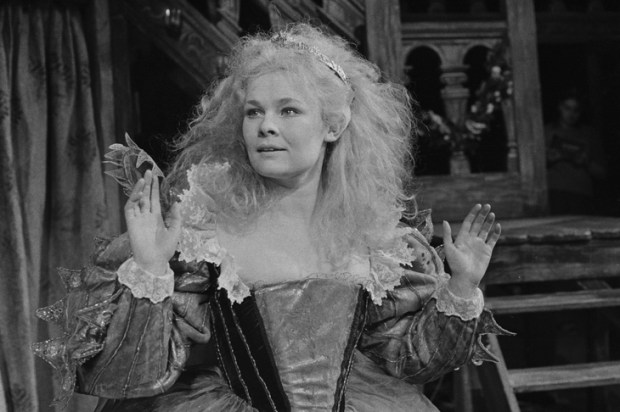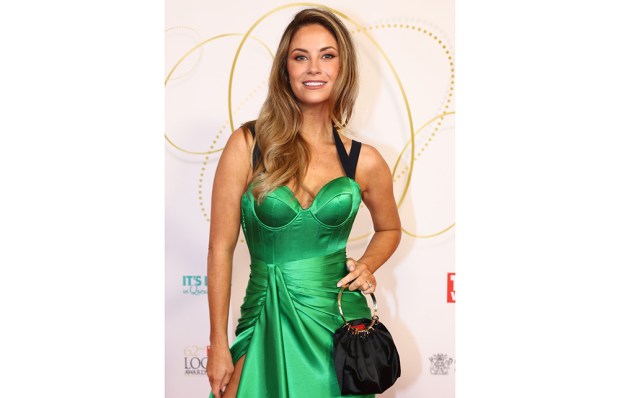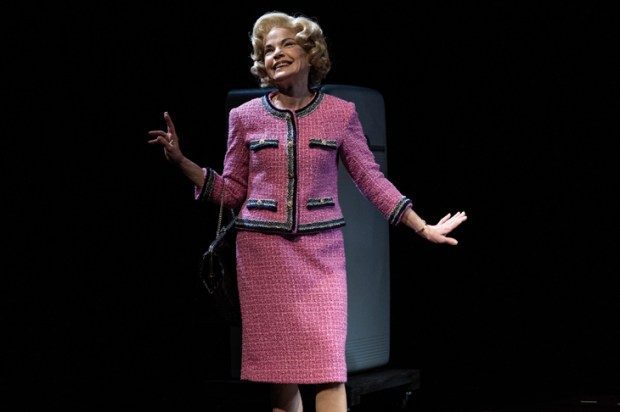So the silly season, the festive season when we celebrate the incarnation of the Good is looming, yet again, and the nightmare and the blessedness is part of the Western legacy; we don’t have to be sectarian about it. And of course the Christmas story is set in under the shadow of Roman rule during the reign of that cruel debauchee Tiberius.
People will go to Carols by Candlelight, they will go to Handel’s Messiah and feel they are standing up for an ancient culture they are somehow part of.
In recent years one of the highlights of the season has been the regular revival of Matthew Warchus’ production of the Jack Thorne version of Dickens’ A Christmas Carol. We saw David Wenham as old Ebenezer Scrooge and then last year saw Owen Teale from Game of Thrones. This year we’re getting Erik Thomson from Packed to the Rafters. But this version of A Christmas Carol seems – in the most active verifiable way – to bring, God help us, comfort and joy.
It will be interesting to compare Thomson’s performance as Scrooge with that other, immensely supple older actor Robert Taylor who plays the patriarch in the new Netflix streamer Territory in which Taylor has to see if he can make his iron will prevail on what is apparently the greatest cattle property in the southern hemisphere. He has to contend with his alcoholic son, Michael Dorman, and with all manner of impacted tensions. Will the new heir be Sam Corlett, the boy most likely in terms of TV matinee idol looks? And what of Anna Torv as the formidable woman of the piece who’s chosen lover is not her pisspot husband but the handsome Jay Ryan.
Last week Shardlake from the first volume of the Tudor detective story series by C.J. Sansom came up on Disney+. The other night we watched the entire three-and-a-half hour sequence in a sitting. It’s set at the time of the dissolution of the monasteries under Thomas Cromwell for the benefit of Henry VIII.
The crew of Shardlake is manifestly Hungarian and the only recognisable actors were Peter Firth (Harry in Spooks, the boy in the long ago film of Equus) as the Duke of Norfolk and Sean Bean as Cromwell who will use ‘truth’ as his torturing play thing.
It can’t be denied that monasteries have great potential when it comes to murder stories because they are naturally atmospheric. There are the Brother Cadfael mysteries which Derek Jacobi did on TV back in the 1990s and there is one episode that made magnificent radio with Philip Madoc (a mesmerically melodious Welshman) as Cadfael, Susannah York as an old flame (is she now an abbess?) and Douglas Hodge as a good sheriff.
But almost apart from the atmospherics of cloisters it’s worth remembering that at a level of realised grandeur one of the greatest detective stories ever written, Umberto Eco’s The Name of the Rose, is monastic murder of the highest order. All of Eco’s other works of fiction are attempts to animate and in the process transfigure the kind of book that says it’s all because of the masons or the Martians or whatever. But The Name of the Rose is the real thing and apart from narrative robbery from ultra-short Borges stories and the cloaktrailing Holmesian name of the detective monk, William of Baskerville, Eco’s encyclopedic detective story owes as much to Thomas Mann’s sense of an enclosed community in The Magic Mountain with its highly coloured card game of intellectual positions some of which in Eco’s hands display the different, sometimes radically and subversively political doctrines of such historical movements as the spiritual Franciscans who could kill for the sake of the Christianity they adhered to.
But what you need in a detective story – and The Name of the Rose belongs with the very greatest of them, such as Wilkie Collins’ The Moonstone and Mark Twain’s Pudd’nhead Wilson, crime writing which transcends its genre and becomes art – is the dramatisation of mystery and the perplexity caused by multiple possibilities. The Sean Connery film doesn’t get this and he’s an odd choice for Baskerville in a world that included Ian Richardson (the British original in House of Cards) or – with a not inappropriate air of sanctity – Alec Guinness.
Shardlake the streamer has the melodramatic shadow of this monastic caper without the dappled light of actualised suspicion so that too many shadowy figures skulk around in cowls without enough of this being suspiciously confounding.
None of which is to deny that the Disney+ version has a power in its representation of conveniently chosen ‘truths’ and faked truths.
But while we’re in the area of grand religious architecture and dark deeds and shadowy figures in monastic gowns it’s worth noting that Andrew Lloyd Webber’s and Tim Rice’s Jesus Christ Superstar is being revived in Melbourne, Sydney and Brisbane and opens on 14 November at Sydney’s Capitol. It’s a piece of music consciously drawing on the tradition of the great requiems but written – startlingly – from the point of view of Judas. The revival has Michael Paynter as Jesus, Javon King as Judas and Mahalia Barnes as Mary Magdalen.
It’s a magnificient bit of scriptural storytelling in its way. It’s been performed by hefty talents in its day – including Tim Minchin and Kate Ceberano – and it was famously staged by Jimmy Sharman at the first height of his powers.
‘I don’t know how to love him’ is – improbably – one of the greatest show tunes ever written and it asks, then lyrically celebrates, the ancient haunting question of faith – whether it’s Christian or Jewish, Muslim or Buddhist.
Think of that great line of Bob Dylan: ‘Only you can decide / whether Judas Iscariot had God on his side.’
The man who re-invented rock music and the very sensibility that makes it apprehensible was performing at the Bournemouth International Centre in Britain. He sang ‘I Contain Multitudes’, his song to Walt Whitman and his song of himself. There was also the eleven-minute ‘Desolation Row’ from sixty years ago.
Remember Dylan saying to Keith Richards, ‘I could have written “Satisfaction” but you couldn’t have written “Desolation Row”.’ ‘And Ezra Pound and T.S. Eliot fighting in the captain’s tower / While calypso singers laugh at them and fishermen hold flowers….’
Got something to add? Join the discussion and comment below.
You might disagree with half of it, but you’ll enjoy reading all of it. Try your first month for free, then just $2 a week for the remainder of your first year.













